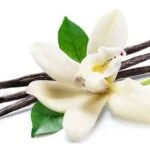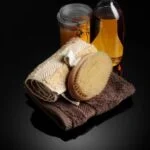Tea tree oil aromatherapy has gained popularity in recent years for its various health and wellness benefits. But what is tea tree oil aromatherapy good for? From skincare to respiratory health, stress relief, and more, this natural remedy offers a wide range of uses.
In this article, we will explore the origins and history of tea tree oil, delve into the science behind its aromatherapeutic properties, examine common uses, benefits for skin and hair, respiratory health improvement, stress relief, and mental well-being. Additionally, we will outline important safety precautions when using tea tree oil for aromatherapy to ensure optimal wellness. Join us as we uncover the power of tea tree oil aromatherapy for overall well-being.
Tea tree oil has been used for centuries by indigenous Australians as a traditional remedy for various ailments. Its remarkable healing properties have intrigued researchers and health enthusiasts worldwide. Understanding the origin and history of tea tree oil can shed light on its enduring appeal and effectiveness in aromatherapy practices today.
The scientific basis behind tea tree oil’s therapeutic qualities is essential to comprehend its efficacy in aromatherapy. We will explore the key components that make up this essential oil and how they contribute to its ability to address a wide range of health concerns. Stay tuned as we unravel the science behind one of nature’s most potent remedies for holistic wellness.
The Origin and History of Tea Tree Oil
Tea tree oil, also known as melaleuca oil, is derived from the leaves of the tea tree plant (Melaleuca alternifolia), which is native to Australia. The use of tea tree oil dates back centuries, with indigenous Australians utilizing the aromatic oil for its medicinal properties. They would crush the leaves and inhale the scent to treat coughs and colds, or apply it topically to treat skin conditions and wounds.
The first recorded use of tea tree oil by Europeans was in the 18th century when Captain James Cook and his crew arrived in Australia and brewed a tea-like beverage from the leaves of the Melaleuca alternifolia tree. It wasn’t until the 1920s that its potential as an antiseptic was rediscovered by Arthur Penfold, a researcher at the government’s Commonwealth Scientific and Industrial Research Organization (CSIRO).
Penfold’s research sparked renewed interest in tea tree oil, leading to its widespread use during World War II when it was included in soldiers’ first aid kits. Since then, its popularity has continued to grow as a natural remedy for various ailments and as a key ingredient in aromatherapy practices around the world.
Today, tea tree oil is primarily cultivated in Australia but is used globally in various forms such as essential oils, carrier oils, shampoos, skincare products, and more. Its rich history and proven effectiveness make it a staple in many households for natural health and wellness purposes.
| Country | Production Amount (In Metric Tons) |
|---|---|
| Australia | 400-500 metric tons |
| China | 50-100 metric tons |
The Science Behind Tea Tree Oil Aromatherapy
Tea tree oil (TTO) has been used for centuries by the indigenous people of Australia. It is derived from the leaves of the Melaleuca alternifolia, a small tree native to Queensland and New South Wales, and it is known for its powerful antiseptic properties. The essential oil is extracted through steam distillation and contains over 100 different compounds, primarily terpinen-4-ol, which is responsible for its antimicrobial properties.
Research on tea tree oil aromatherapy has shown that it possesses antibacterial, antiviral, and antifungal properties. Studies have demonstrated its effectiveness in killing a wide range of harmful bacteria and fungi, making it a popular natural remedy for skin infections such as acne, athlete’s foot, and nail fungus. Additionally, its antiviral properties make it useful in treating cold sores caused by the herpes simplex virus.
Furthermore, the chemical composition of tea tree oil has been found to have anti-inflammatory effects. This makes it beneficial for treating skin conditions such as eczema and psoriasis when used in aromatherapy or diluted in carrier oils for topical application. Its ability to reduce inflammation also contributes to its effectiveness in relieving respiratory issues such as bronchitis, sinusitis, and congestion when used in diffusers or steam inhalation.
| Properties of Tea Tree Oil | Effects |
|---|---|
| Antimicrobial | Kills harmful bacteria and fungi |
| Anti-inflammatory | Reduces inflammation on the skin and respiratory tract |
| Antiviral | Treats cold sores caused by herpes simplex virus |
Common Uses of Tea Tree Oil in Aromatherapy
Tea tree oil has been used for centuries for its various health benefits. In aromatherapy, it is a popular essential oil that can be used in a variety of ways to promote wellness and improve overall health. Here are some common uses of tea tree oil in aromatherapy:
- Diffusing: One of the most popular ways to use tea tree oil in aromatherapy is by diffusing it. Adding a few drops of tea tree oil to a diffuser can help purify the air, promote relaxation, and improve respiratory health.
- Topical application: Tea tree oil can also be used topically in aromatherapy. When diluted with a carrier oil, it can be applied to the skin to help with various skin conditions such as acne, eczema, and fungal infections.
- Inhalation: Inhaling the aroma of tea tree oil through steam inhalation or adding a few drops to a bowl of hot water can help alleviate congestion and ease respiratory discomfort.
These are just a few examples of how tea tree oil can be used in aromatherapy to promote well-being and address common health concerns. With its natural antibacterial, antifungal, and anti-inflammatory properties, tea tree oil has become a staple in many aromatherapy routines. However, it is important to use tea tree oil with caution and adhere to safety precautions when using it for aromatherapy purposes.
Benefits of Tea Tree Oil Aromatherapy for Skin and Hair
Tea tree oil has been widely used in aromatherapy for its potential benefits for skin and hair. The oil is extracted from the leaves of the Melaleuca alternifolia, a small tree native to Australia. It has been used for centuries by indigenous Australians for its medicinal properties. When applied topically or used in aromatherapy, tea tree oil can offer a variety of benefits for the skin and hair.
One of the main benefits of tea tree oil aromatherapy for the skin is its ability to help with various skin issues such as acne, psoriasis, and eczema. This essential oil possesses antimicrobial and anti-inflammatory properties that can help reduce redness and irritation associated with these conditions. Additionally, tea tree oil can help soothe insect bites and minor cuts or abrasions, promoting faster healing.
When it comes to hair care, tea tree oil aromatherapy is known for its potential to promote a healthy scalp. It has been used to alleviate dandruff and dry scalp, thanks to its antifungal properties that can help combat the underlying causes of these conditions.
Furthermore, incorporating tea tree oil into your hair care routine may also contribute to stronger, thicker hair due to its cleansing and nourishing effects on the scalp. With regular use, this essential oil can help maintain overall scalp health and improve the appearance and feel of your hair.
How Tea Tree Oil Aromatherapy Can Improve Respiratory Health
Tea tree oil aromatherapy has been found to have numerous benefits when it comes to promoting respiratory health. The use of this essential oil can help alleviate symptoms associated with respiratory conditions and support overall lung function.
Clearing Congestion
One of the key benefits of tea tree oil aromatherapy for respiratory health is its ability to clear congestion. When inhaled, the oil can help open up the airways, making it easier to breathe, especially for those suffering from conditions such as asthma or bronchitis. The antimicrobial properties of tea tree oil also help in preventing and treating infections that may affect the respiratory system.
Reducing Inflammation
In addition to clearing congestion, tea tree oil has anti-inflammatory properties that can help reduce inflammation in the respiratory tract. This is particularly beneficial for individuals dealing with conditions like sinusitis or allergies, as it can soothe the inflamed tissues and provide relief from discomfort.
Promoting Respiratory Wellness
Regular use of tea tree oil aromatherapy can contribute to overall respiratory wellness by supporting healthy lung function and strengthening the immune system. By incorporating this essential oil into a daily self-care routine, individuals can potentially reduce their risk of developing respiratory issues and maintain optimal lung health.
Tea Tree Oil Aromatherapy for Stress Relief and Mental Well-Being
Effective in Reducing Stress and Anxiety
One of the most popular uses of tea tree oil in aromatherapy is for stress relief and relaxation. The soothing aroma of tea tree oil has been found to have a calming effect on the mind and body, helping to reduce feelings of anxiety and stress. When used in aromatherapy diffusers or added to bathwater, tea tree oil can create a peaceful environment that promotes relaxation and mental well-being.
Improves Mood and Mental Clarity
In addition to its stress-relieving properties, tea tree oil aromatherapy can also help improve mood and mental clarity. The invigorating scent of tea tree oil can help uplift the spirit and provide mental stimulation, making it an excellent choice for promoting focus and concentration during work or study sessions. Many people find that incorporating tea tree oil into their daily routine helps them maintain a positive outlook and stay mentally sharp throughout the day.
A Natural Remedy for Emotional Balance
Using tea tree oil aromatherapy as part of a self-care routine can be beneficial for overall emotional balance. Whether dealing with everyday stressors or more challenging situations, the calming effects of tea tree oil can provide a sense of emotional stability.
By creating a relaxing atmosphere at home or work, individuals can better manage their mental well-being and cultivate a more positive mindset. Incorporating tea tree oil aromatherapy into mindfulness practices such as meditation or yoga can further enhance its benefits for emotional balance.
Safety Precautions and Considerations When Using Tea Tree Oil Aromatherapy
Tea tree oil is a versatile essential oil that has been used for centuries for its medicinal properties. When using tea tree oil for aromatherapy, it is essential to be aware of safety precautions and considerations to ensure maximum benefits without any adverse effects.
Here are some important safety precautions and considerations when using tea tree oil aromatherapy:
- Always dilute tea tree oil: Tea Tree Oil should always be diluted before use. Undiluted tea tree oil can cause skin irritation or allergic reactions in some individuals. It is recommended to mix 1-2 drops of tea tree oil with a carrier oil such as coconut, almond, or olive oil before applying it on the skin.
- Patch test before use: Before using tea tree oil on a larger area of the skin, it is crucial to perform a patch test. Apply a small amount of diluted tea tree oil to the skin and wait for 24 hours to check for any adverse reactions such as redness, itching, or swelling.
- Keep away from children and pets: Tea tree oil should be stored in a safe place away from the reach of children and pets. Ingestion of undiluted tea tree oil can be toxic and should be avoided at all costs.
By following these safety precautions and considerations, you can enjoy the benefits of tea tree oil aromatherapy while minimizing potential risks. Always consult with a healthcare professional if you have any underlying medical conditions or concerns before incorporating tea tree oil into your aromatherapy routine.
Conclusion
In conclusion, the use of tea tree oil in aromatherapy has a rich history and a growing body of scientific evidence supporting its numerous benefits. From its origins in Australia to its current widespread use, tea tree oil has been recognized for its antiseptic, anti-inflammatory, and antimicrobial properties. This makes it a versatile essential oil that can be used for various purposes in aromatherapy.
Tea tree oil aromatherapy is commonly used to promote skin and hair health, as well as to improve respiratory health. Its ability to reduce stress and promote mental well-being also makes it a valuable tool in holistic wellness practices. However, it is important to note that while tea tree oil offers many benefits, precautions must be taken when using it in aromatherapy due to its potency.
Overall, the power of tea tree oil aromatherapy lies in its ability to contribute to overall wellness. Whether it’s through skincare, respiratory health improvement, or stress relief, harnessing the potential of this essential oil can lead to a more balanced and holistic approach to maintaining well-being. With proper understanding and utilization, tea tree oil aromatherapy can continue to play an important role in promoting physical and mental health for individuals seeking natural and effective solutions.
Frequently Asked Questions
What Does Tea Tree Aromatherapy Help With?
Tea tree aromatherapy is known for its antibacterial, antifungal, and anti-inflammatory properties. It can help with skin issues such as acne, eczema, and psoriasis. It also has a calming effect and can help reduce stress and anxiety.
Is Aromatherapy Tea Tree Oil Safe for Skin?
Aromatherapy tea tree oil is generally considered safe for skin when used in diluted form. However, some people may experience irritation or allergic reactions, so it’s important to do a patch test before using it on a larger area of the skin.
What Are the Emotional Benefits of Tea Tree Essential Oil?
Tea tree essential oil is believed to have several emotional benefits, including promoting relaxation, reducing mental fatigue, and uplifting mood. It is often used in aromatherapy for its refreshing and invigorating effect on the mind.

Are you looking for a natural way to improve your health and wellbeing?
If so, aromatherapy may be the answer for you.






